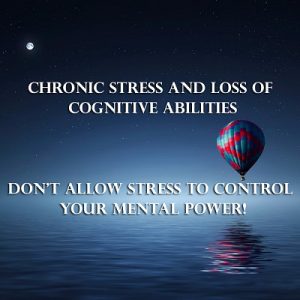 Chronic stress takes a toll on virtually the entire body, but usually the first place it is noticeable is from the effects it has on our brain. Specifically, our cognition suffers, and persons around us who are accustomed to the way we are will notice marked changes.
Chronic stress takes a toll on virtually the entire body, but usually the first place it is noticeable is from the effects it has on our brain. Specifically, our cognition suffers, and persons around us who are accustomed to the way we are will notice marked changes.
But stress does not need to take hold of our brain and cognition, reducing us into inefficient workers; as we can do things to restore our mental prowess.
Suffering from the cognitive deficits resulting from chronic stress yourself? Then read on and see how you can reduce chronic stress burden and reclaim your glory:
Don’t Multitask
They say that women are multitaskers, while men are not, and to an extent it is true. However, as a species we are pretty poor at multitasking altogether, as it requires split brain processing to effectively do.
So, while you may be able to wash the dishes while cooking, as they only require light mental work, you may not be able to do calculus and write a novel at the same time, as you need to dedicate yourself to one at a time.
It is similar to having a PC and running numerous processes at the same time. The memory is split, and thus individual processes lose efficiency and run slower than if run alone. Under stress, this is much clearer.
Stress already induces changes to the brain that reduces learning and focus, and instead prioritizes emotional responses, so do not attempt to work on multiple big projects when under a lot of stress. Instead, do one thing to completion or at least to a level you can consider a goal completed.
Do Intense Work Early in the Day
Chronic stress does not eliminate our ability to focus or remember things, but it does make it harder. One way to combat this is to perform your most complex tasks early in the day. Upon waking, your mind will be much more capable of doing this task efficiently. So, study for an exam, complete work, write a few pages; whatever it is that you deem most important.
Just Stop Thinking
Mental overload coupled with a heavy stress burden will lead to a rapid decline in cognitive abilities, which makes it a good idea to take a step back and analyze. However, most people won’t step back and analyze, as the response under stress is to push even harder. This is when meditation can offer great help.
Meditation in every sense seeks to toss out thoughts- as opposed to dwelling on things as there is nothing you can do about them at that moment in time. Practice mindfulness meditation, be thankful for things you have and don’t obsess over things that may or may not even happen. Meditation will also have the end goal of helping you focus and concentrate on a single task, thus improving your efficiency.
Form Associations
Forming associations to reinforce memory can seem childish, but when all else fails go back to basics. Associations act as a failsafe mechanism for your memory when strict recollection is difficult.
Think of associating smells with something- for example, you need to visit the supermarket for pumpkin later in the evening, but keep forgetting for days. Luckily, the office has the scent of pumpkin spice candles around all day. These small associations can help encourage growth of neuronal connections and help compensate for the memory deficits induced by chronic stress.
Stress does not even need to become chronic. Get enough sleep, make time for relaxation and laugh often. These little things go far to help reduce stress load. Eat a diet rich in whole foods, and you will be halfway home.






